Wilson`s School Mathematics Department
advertisement
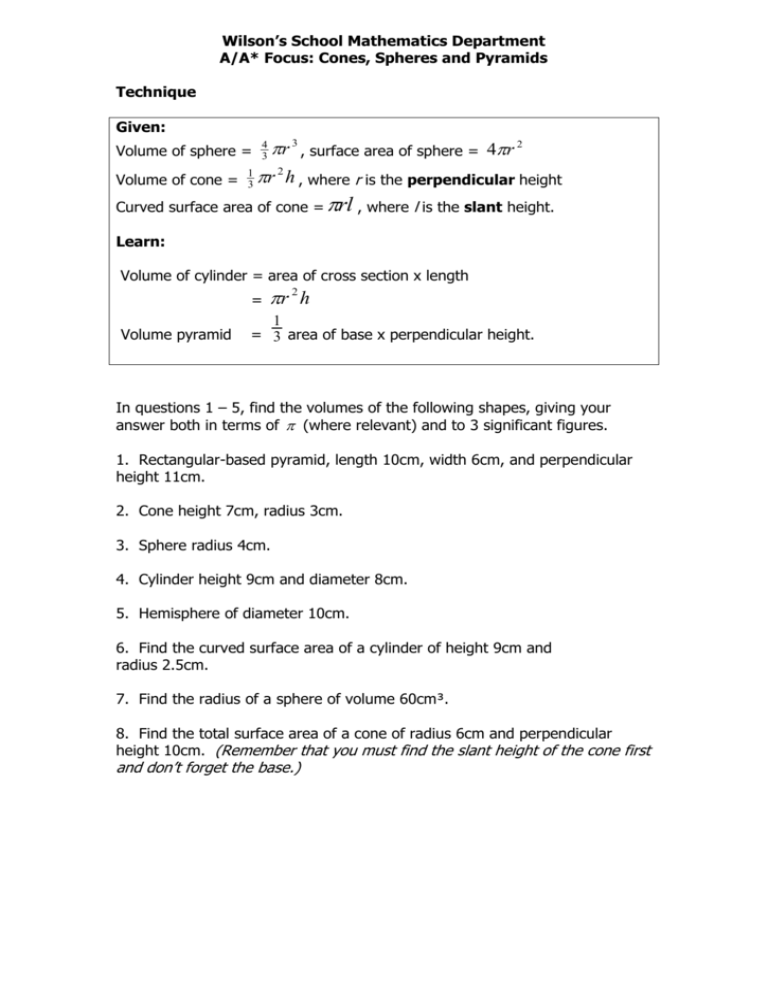
Wilson’s School Mathematics Department A/A* Focus: Cones, Spheres and Pyramids Technique Given: r 3 , surface area of sphere = 4r 2 2 1 3 r h , where r is the perpendicular height Volume of sphere = Volume of cone = 4 3 Curved surface area of cone = rl , where l is the slant height. Learn: Volume of cylinder = area of cross section x length = Volume pyramid r 2 h 1 = 3 area of base x perpendicular height. In questions 1 – 5, find the volumes of the following shapes, giving your answer both in terms of (where relevant) and to 3 significant figures. 1. Rectangular-based pyramid, length 10cm, width 6cm, and perpendicular height 11cm. 2. Cone height 7cm, radius 3cm. 3. Sphere radius 4cm. 4. Cylinder height 9cm and diameter 8cm. 5. Hemisphere of diameter 10cm. 6. Find the curved surface area of a cylinder of height 9cm and radius 2.5cm. 7. Find the radius of a sphere of volume 60cm³. 8. Find the total surface area of a cone of radius 6cm and perpendicular height 10cm. (Remember that you must find the slant height of the cone first and don’t forget the base.) Exam Style Questions: 9. When 2 litres of oil is removed from an upright cylindrical can, the level falls by 9 cm. Find the radius, r, of the can. 10. A solid metal cube of sides 6cm is recast into a solid sphere. Find the radius of the sphere. 11. The diagram shows a sector of a circle of radius 7.5cm (a) Find, as a multiple of , the arc length of the sector. The straight edges are brought together to make a cone. Calculate (b) the radius of the base of the cone. (c) the perpendicular height of the cone. 1. 220 cm³ 2. 21 = 66.0 cm³ 256 = 268 cm³ 3. 3 4. 144 = 452 cm³ 250 = 262 cm³ 5. 3 6. 45 = 141 cm² 7. 2.43 cm 8. 84 = 264 cm² 9. Radius = 8.41 cm 10. Radius = 3.72cm 11. (a) 12 (b) 6 cm (c) 4.5 cm
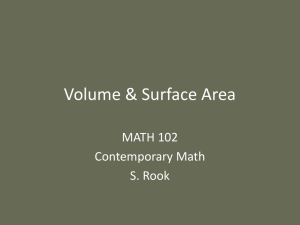
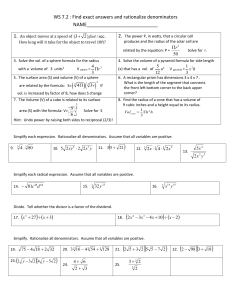
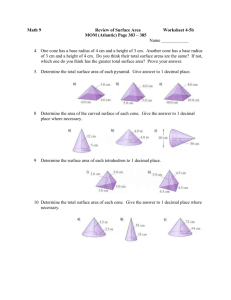
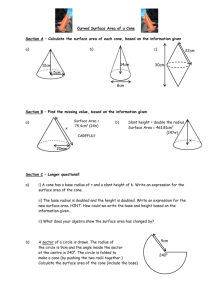
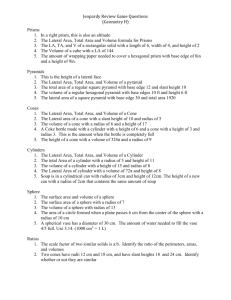
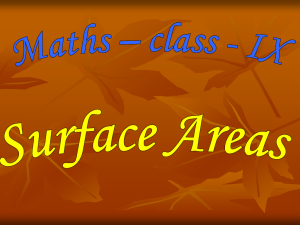
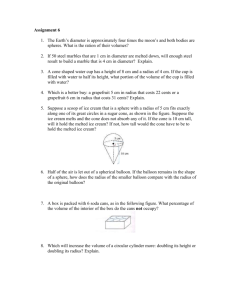
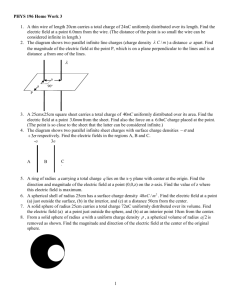
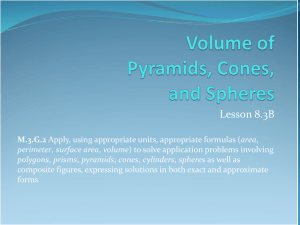
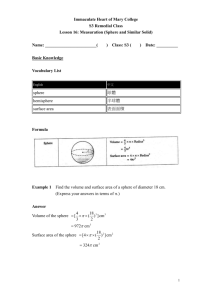
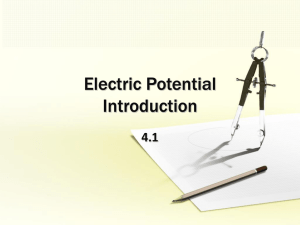
![Volume of Pyramids, Cones, and Spheres [12/4/2013]](http://s2.studylib.net/store/data/005724855_1-4c0eaf218975fc4d9fe792c18193e4dc-300x300.png)